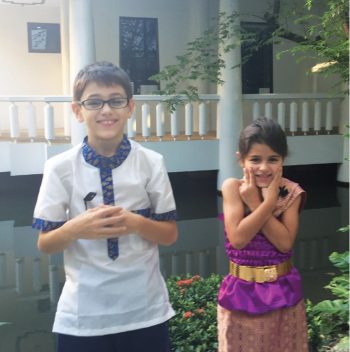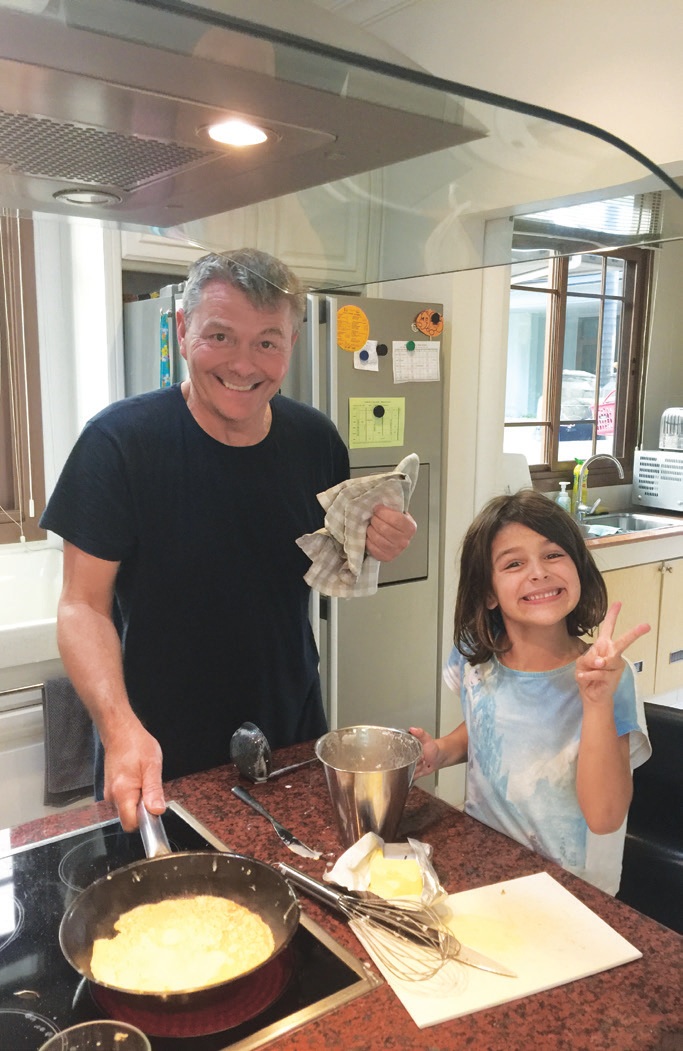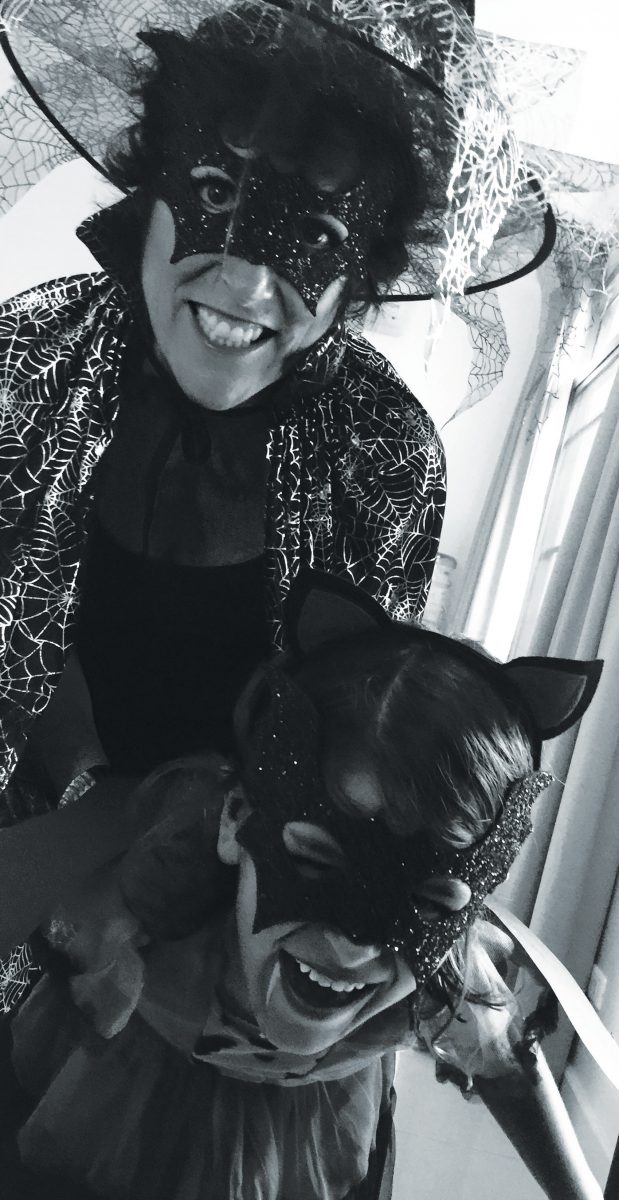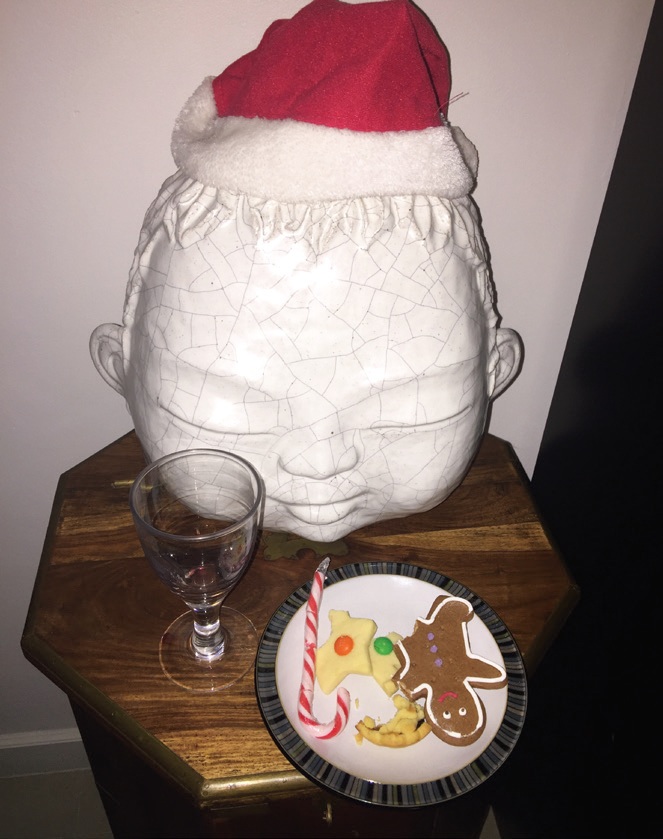
The importance of tradition in the expat family
Alex whose own family is a mish-mash of heritage and cultures explores why family traditions are so important especially in the expat lifestyle.
Research time and time again proves that traditions are important in building strong family bonds, helping forge a sense of belonging and a familiar routine that is soothing and reliable year after year. They help to promote a sense of identity such as cultural or religious insights about heritage, they strengthen the family bond and offer security and comfort (children love routine, they like to know what to expect and what is happening next), they teach values whilst adding a seasonality and rhythm to life, they connect generations and create lasting memories.
In the expat world where we often celebrate big life events without the extended family I believe that traditions provide even more comfort. With feelings of being disconnected and conflicts within their identify many third culture kids feel like, creating traditions which foster connections and improve identity can only be beneficial.
So, what is a tradition? It’s simple: any behaviour you engage in time and time again. They can be big or small. For example dinner time is a hugely beneficial ritual for families. Many child psychologists rate eating together above reading to your kids. It is a chance to connect and engage, unwind, share stories, if necessary resolve conflicts, whilst instilling values such as good eating habits, table manners, courtesy and appreciation. In our increasingly busy lives, many families hardly ever sit down together, just eating dinner together gives half an hour of valuable connection time.

Uncle Nige visits
Whilst many expat families have at least one parent working long hours or travelling, the importance of the caregiver who is available actually being present with the kids for one meal a day cannot be underestimated. In our house we combine dinner time with a chance to reflect on our 3 grateful things. Gratitude is a valuable tool for keeping a demons of negativity at bay as it helps to rewire the brain to think more positively. We switch it around with Rose (something good) Thorn (a mistake or something we wish we had done differently or better) and Bud (something we are looking forward to or a kind act we did). The kids enjoy this tiny ritual so much they will often remind me if we forget to do it.
So that is an example of a daily connection tradition, small things done everyday that reinforce family values and identities. Weekly connections are similar but done weekly such as pancakes for breakfast on a Sunday, Friday night movie night, family board game night, Friday fizz by the pool (there is a theme to my rituals you’ll start to identify with). They are so simple and easy to do and the children relish these times. I’ll be honest, we don’t always manage pancakes every Sunday or movies every Friday because real life takes over but they have happened regularly enough to support a tradition that is welcomed and enjoyed by us all.
My husband comes from a large family of Indian heritage he was born in Kenya and raised in the UK. The family still retains some strong traditions: my mother in law always dresses in a sari, they eat freshly home cooked vegetarian Indian food every day and always have (it is amazing,
so delicious and authentic) and the family language speak Gujarati to each other. This makes for some rather short conversations between my husband and his parents, which is the only downside but they will speak English to us and so anything really important and beyond Mr P’s limited linguistic skills is left to me to decipher.
My daughter, has a strong sense of her Indian heritage, possibly because her name is India and she has inherited a more olive complexion than my son. She brags to him that she is more Indian than he is and then pretends she can speak like her grandparents (it’s made up nonsense
but very sweet nonetheless). Recently we returned to the UK to celebrate ‘The Outlaws’ as I affectionately call them, 70th wedding anniversary.
What an amazing day. Humble and basic in a local community hall, there were almost 200 people there. Mr P didn’t think his parents even knew who everyone was. There was a marvellous compere providing nonstop commentary interspersed with Bollywood classics and the occasional Kenyan tribal dance as a nod to the Kenyan times. Even estranged members of the family buried the hatchet to be there in celebration of an amazing marital achievement. The cuisine of course was Indian and delicious as it lends itself marvellously to mass catering and several of us were relieved to see that the bar was open so the wine flowed.
We have also attended family weddings, which are a similarly rambunctious occasion. Despite the highly religious ceremony going on with the bride and groom at the front of the room, the aunties can be relied upon to be noisily gossiping and marrying off the remaining nieces and nephews who have slipped through the net at the back. It is an amusing insight into the importance of tradition and comparison to western weddings.

After my son was born, I wanted to obtain a book which briefly explained the stories of the main Hindu Gods so he would appreciate a little more about his heritage. Heading off to a big shop
in Leicester with my sister in law to obtain such a book we were told there were none. Families choose a God that they relate to for their family and tend not to swap allegiances. I was advised to hang pictures of different Gods around my son’s bedroom to see which one he took a fancy to and invest in the story of that one. Knowing Mr P’s cynical approach to the vast variety of Hindu Gods, I knew removing the Thomas the Tank Engine pictures and replacing them with Ganesh and Shiva would not go down too well. My husband is not so into heritage and tradition.
Being from such a large family, Mr P has never really celebrated birthdays and of course not a Christmas. These are traditions that I know he struggles with. However they are a strong part of my heritage: setting up the mince pie and glass of vino for Santa Claus, filling the stocking and placing the presents under the tree, the pre-lunch fizz (only allowed on Christmas Day you understand) and recently the addition of sprinkling reindeer food (oats and glitter) to guide the reindeer in (a tradition introduced by a friend: we all get together and the kids concoct their own version). I love the simple rituals as much as I love choosing presents and dressing up, cooking and overindulging all day. These rituals have been adapted from the ones we enjoyed as children to create our own family traditions.

Similarly birthdays are a big deal: it is the only day which is totally for you. My son, thanks to absolutely no planning on his parents’ behalf, celebrates his birthday on Boxing Day (the day after Christmas). How rubbish is that? So we have developed a tradition over the years of the non-birthday-boxing-day party. We invite all our friends who have not gone ‘home’ to celebrate and enjoy cake and fizz but there are no party games or goodie bags, it’s a great excuse to impart a little tradition to our expat friends at a special time of year. One year we had over 100 people round to partake. And of course there is always an official party later in January whilst Christmas Eve is now traditionally cake making day! So very different from ‘counting the Quality Street day’ Christmas Eve of my youth. And so that brings me nicely back to the expat bit. With all of us away from our nearest and dearest at poignant times of the year, the traditions we engage in with our ‘village’ provide that familial connection that makes up for the missing relatives. It also gives a wonderful opportunity to embrace new traditions. We celebrated our first ever Thanksgiving in our first year in Bangkok. Our Moobaan supports Halloween with a compound wide event and the kids trick or treat safely, something again we had not done before arriving here. We have traditions for celebrating dear friend’s birthdays and when it is their time to move on that all foster a unique sense of community, which provides support, attachment, belonging in an otherwise transient lifestyle.
As I finish off, my thoughts drift to another tradition: the tooth fairy since my daughter finally lost her first tooth this morning. This follows a daily ritual for her of gurning in the mirror instead of getting dressed every morning checking on the progress of the wobbly one. She has been desperate to loose a tooth since her brother lost his first tooth 4 years ago. It’s been a long wait and she was overjoyed. So now I must ensure I set the alarm on my phone to remind me to retrieve said tooth from under the pillow and deposit a generous but not overly so Baht note in its place. And there we have it: the simple things in life provide enormous pleasure and that’s what tradition is all about, it doesn’t need to be elaborate but it will be treasured. As mindfulness guru John Kabat-Zinn said, ”The little things? The little moments? They aren’t little.



